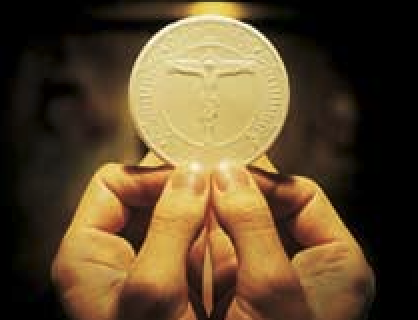Here's a tough question for American pastors: If local school officials voted to limit the freedom of Muslim students to publicly practice their faith, would you urge your flock to protest?
Those who believe in religious liberty must answer "yes," according to the Rev. Rick Warren, leader of the 20,000-member Saddleback Church in Lake Forest, Calif.
"If a school district tells me that a Muslim girl can't wear a headscarf to school, I'm going to oppose that rule," he said, during a recent forum held by the Religious Freedom Project of the Berkley Center For Religion, Peace and World Affairs at Georgetown University.
"If they say she can't wear a headscarf to school," he said, then "tomorrow they're going to say that I can't wear a cross and carry a Bible."
This raises another question: If the leader of one of America's most prominent megachurches headed to the barricades to defend the rights of Muslims, would the press coverage say that he is taking a "liberal" or a "conservative" stand?
Then, would Warren receive the same label if he protested in support of a local Christian college's rejection of the Health and Human Services mandate requiring most religious institutions to offer health-insurance plans that cover all FDA-approved forms of contraception, sterilizations and even "morning-after pills"?
Both protests would be in support of freedom of religion.
"The worse thing that could happen" in public discourse today, he said, would be for the term "religious liberty" to become a "code word for one side or the other, for liberals or conservatives, or Republicans or Democrats. ... That would be a fatal mistake for the party that didn't support the first freedom of this country."
Recent American debates about religious liberty have centered on whether the White House or any other branch of the government can decree that "freedom of worship" is more worthy of protection than the "free exercise" of religious freedom, a much broader constitutional concept.
While the HHS disputes will almost certainly reach the U.S. Supreme Court, the organizers of the Georgetown forum dedicated just as much attention to limitations on religious freedom worldwide, a trend being documented in annual reports by the Pew Forum on Religion and Public Life.
The most recent survey noted: "Because some of the most restrictive countries are very populous, three-quarters of the world's approximately 7 billion people live in countries with high government restrictions on religion or high social hostilities involving religion, up from 70% a year earlier. ... The rising tide of restrictions ... is attributable to a variety of factors, including increases in crimes, malicious acts and violence motivated by religious hatred or bias, as well as increased government interference with worship or other religious practices."
The bottom line is that religious liberty is important for believers and unbelievers and is linked to the success of any state or government, said Thomas Farr, director of the Berkley Center. Studies indicate that religious liberty promotes economic development, women's rights, political stability and improved care of the poor and the vulnerable.
But severe restrictions on religious freedom, especially for religious minorities, are increasing and not just in the developing world, he said.
"Christians are the most likely victims and Muslims come in a close second. While most of the persecution takes place outside the West, neither Europeans nor Americans can afford to be complacent," said Farr. "Social hostility toward religion is rising faster in Europe than any other region of the world. And here in America, where religious liberty has long been considered the first freedom of our constitution and our history, both social hostility and government restrictions on religion are on the rise."
For Warren, the key is for Americans to be willing to stand up for the rights of others, even those whose religious beliefs they believe are eternally in error. Many American Christians "need to repent" because they have failed to display that kind of true tolerance, he said.
"God gave us the freedom to chose. ... We make moral choices," he noted. "God gives me the freedom to choose what I believe. God doesn't even force me to love him – he gives me the choice to love him or reject him. He gives me the choice to obey him or to disobey him. If God gives me that choice, then I owe you that choice and you owe me that choice."





